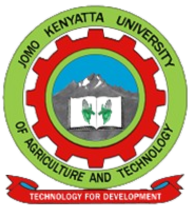JKUAT Vice Chancellor, Prof. Victoria Wambui Ngumi has called for concerted efforts to break gender barriers in science, technology, engineering, and mathematics careers, emphasizing the pivotal role of inclusivity in driving innovation and progress.
In her address during the 2024 International Union of Pure and Applied Chemistry Global Women’s Breakfast, Prof. Ngumi highlighted the increased recognition and contributions made by women and marginalized genders in scientific fields globally.
“In recent years, the global discourse surrounding gender in science has surged to unprecedented heights. We must recognize and celebrate the impact of gender-inclusive perspectives in every facet of scientific inquiry,” said Prof. Ngumi.
Acknowledging Kenya’s abundant untapped talent, Professor Ngumi emphasized the urgent necessity to catalyse gender inclusivity in science. She advocated for nurturing a vibrant scientific ecosystem that effectively dismantles barriers hindering the full participation of women and under-represented groups in STEM disciplines.
The call to action resonated deeply with attendees, who recognized the urgency of addressing gender disparities in science. Director, African Foundation for Women and Youth in Education and STI, Prof. Jane Catherine Ngila decried the low number of female researchers on a global scale.
“Globally, women constitute approximately thirty percent of scientific researchers; a ratio that has demonstrated minimal variation over the past decade. The higher the position, the more this proportion declines. For instance, only 12% of the members of the national academies of science are women,” said Prof. Ngila.
In her recommendations to narrow the gender gap in STEM, Prof. Ngila noted that it’s crucial to include more stories of female scientists in school textbooks and increase their visibility in media and popular culture while also empowering female scientists through funding, outreach activities, and equitable representation in committees to foster inclusivity and supports their career advancement.
She further said facilitating access to research grants and promoting global networks can strengthen connections and visibility worldwide, further advancing women inclusion in the scientific community.

Participants follow proceedings
Another Speaker Prof. Naumih Noah, an Analytical bioanalytical chemistry at USIU, emphasized the critical need to provide mentorship, support networks, and equitable opportunities for women and under-represented groups in science.
She stressed the importance of fostering a culture that celebrates diversity and values the contributions of all individuals in scientific endeavors. Prof. Naumih underscored the collective determination to catalyze diversity in science and ensure that gender barriers are dismantled, paving the way for a more inclusive and innovative future in STEM fields.
During the forum, several speakers addressed crucial topics. Dr. Saoke Churchil, from the Department of Physics, provided recommendations on catalyzing diversity in science. Prof. Anthony Gachanja discussed the importance of community science and strategies for ensuring diversity in the field. Prof. Anthony Waititu, the Dean of the School of Mathematics and Physical Sciences, explored the interconnectedness of Sustainable Development Goals (SDGs) and gender equality. Additionally, Dr. Elijah Ngumba, Chairman of the Department of Chemistry, contributed to the discussions. Key partners from the Pan African Chemistry Network and the Royal Society of Chemistry were also in attendance, enriching the forum with their expertise and perspectives.

Time to Break Gender Barriers in Science


Leave a Reply